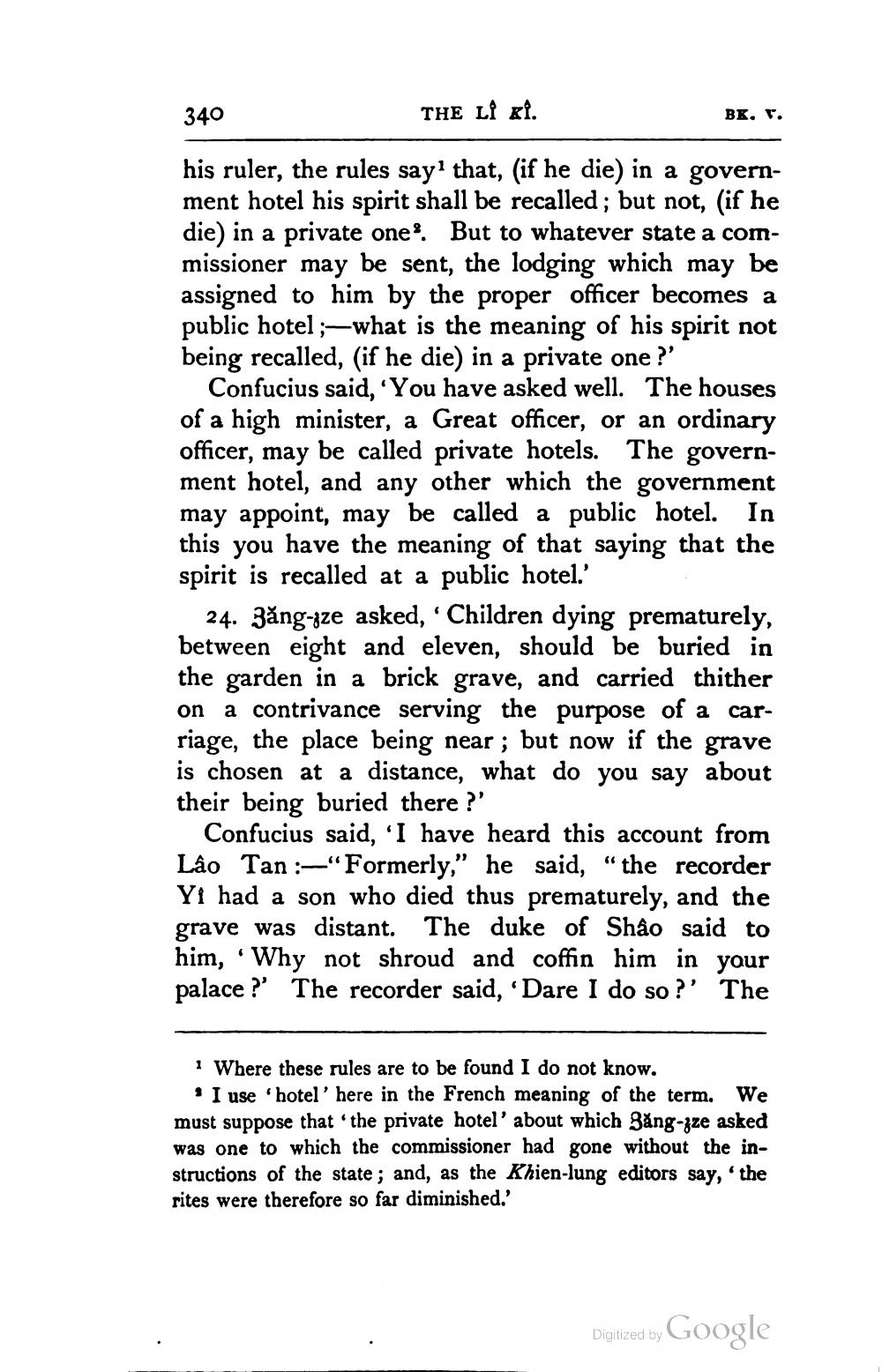________________
340
THE Lİ Kİ.
his ruler, the rules say1 that, (if he die) in a government hotel his spirit shall be recalled; but not, (if he die) in a private one. But to whatever state a commissioner may be sent, the lodging which may be assigned to him by the proper officer becomes a public hotel;-what is the meaning of his spirit not being recalled, (if he die) in a private one?'
BK. V.
Confucius said, 'You have asked well. The houses of a high minister, a Great officer, or an ordinary officer, may be called private hotels. The government hotel, and any other which the government may appoint, may be called a public hotel. In this you have the meaning of that saying that the spirit is recalled at a public hotel.'
24. 3ăng-ze asked, ' Children dying prematurely, between eight and eleven, should be buried in the garden in a brick grave, and carried thither on a contrivance serving the purpose of a carriage, the place being near; but now if the grave is chosen at a distance, what do you say about their being buried there?'
Confucius said, 'I have heard this account from Lâo Tan:-"Formerly," he said, "the recorder Yi had a son who died thus prematurely, and the grave was distant. The duke of Shâo said to him, 'Why not shroud and coffin him in your palace?' The recorder said, 'Dare I do so?' The
1 Where these rules are to be found I do not know.
I use 'hotel' here in the French meaning of the term. We must suppose that the private hotel' about which Băng-zze asked was one to which the commissioner had gone without the instructions of the state; and, as the Khien-lung editors say, 'the rites were therefore so far diminished.'
Digitized by
Google




